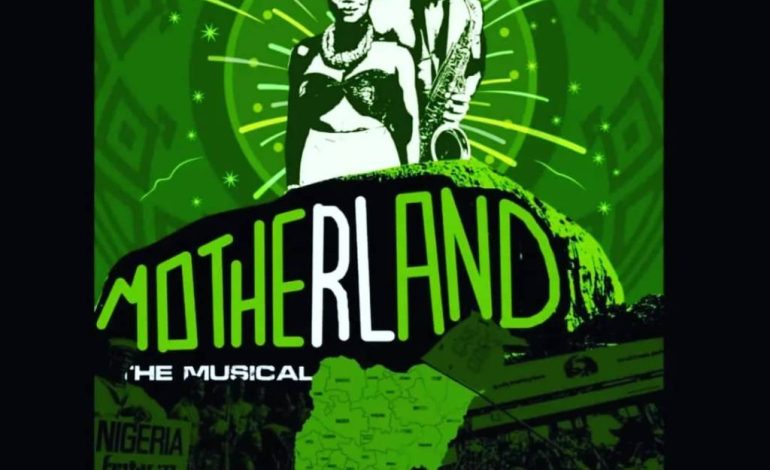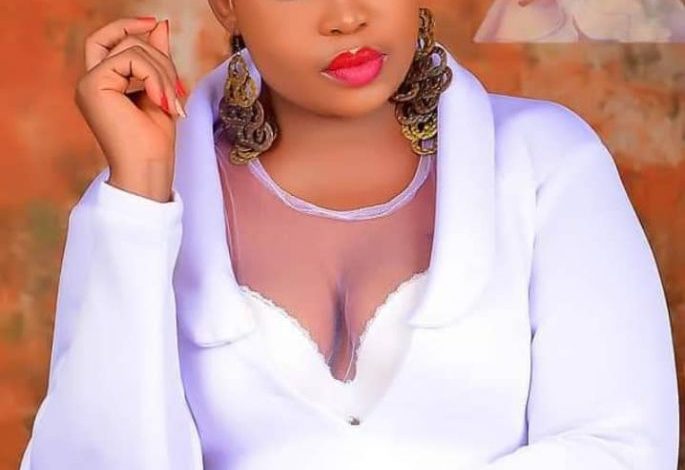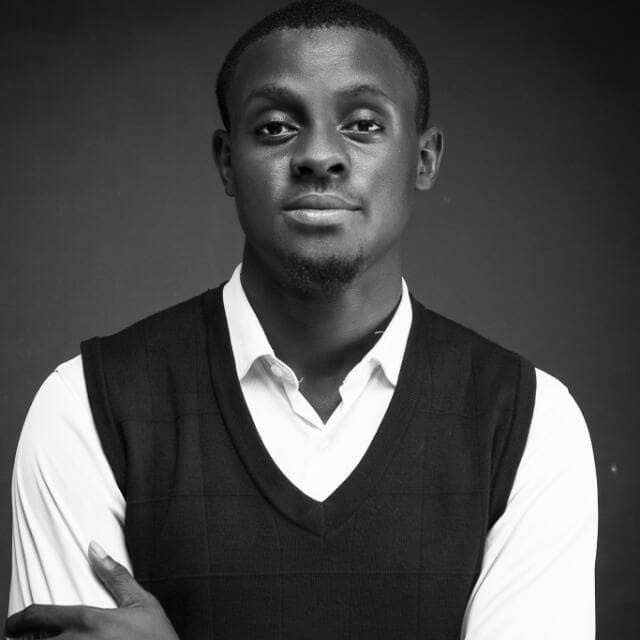In my art docu-films, I function on pure curiosity, says Juul van der Laan

‘It’s Oluwole’s Orunmila philosophy of complementarity and oppositional thoughts in logic that interests me’
By Anote Ajeluorou

Juul van der Laan is a Dutch independent artist-filmmaker who is interested in bringing various narratives, theories, beliefs and micro-cultures out for further examination. As an artist who initially graduated in Chemistry before occupying herself with film, she still tends to move across the fields of philosophy and science with her films. She believes that critical consideration is a necessary ingredient to make our lives interestingly rich. Van der Laan has been creating films (among which is Jelili Atiku: Portrait of a Performance (2021), Multiverse Ghana (2015)), interactive film-installations (IMU (2022), Relativity (2016)), and she has been working as a researcher for documentary films and television. She mostly shoots and edits her own work. In 2017, Juul met the late Nigerian philosopher Sophie Bosede Oluwole, author of Socrates and Orunmila: Two Patron Saints of Classical Philosophy (Ark Publishers, Lagos; 2015) for the first time in Amsterdam, followed by the privilege to visit her in her hometown in Nigeria that same year. The short film on her is a reflection of these encounters and strives to introduce Prof. Oluwole and her phenomenal work, in memory of her. Laan was at Lagos Book and Art Festival 2022 to exhibit her Oluwole documentary

What is it about Sophie Oluwole’s philosophic work that interests you?
My interest started in Prof. Sophie Oluwole’s work and person started when I read her book, before she even came to The Netherlands to promote the Dutch edition. That was when I met her, but I had already read some of her books. This was quite special because the book was not officially from The Netherlands, like the Nigerian version. It’s basically the philosophy behind what she says, how she speaks about complementarity and oppositional thoughts in logic under Yoruba folk traditions that is also common in Western thought. That’s something that triggered my interest very much. I basically studied Chemistry, but I abandoned academia because I wasn’t happy in it. When I came across her work, I was interested in this different way of thinking, and this other approach, and I got to meet her in person.
If you ask me why Nigeria, I’d say it’s really Oluwole that brought me here. I didn’t know much about Nigeria. It’s the philosophy she wrote about and her as a person that I learned more about this system of thought. That’s basically why I’m here. I was going to continue working with her on the project but she passed away in 2018. I met her in 217 and we decided to work together. She invited me for a small road trip to Yorubaland, so we went to Oshogbo and she showed me a few things. The idea was always that I would come back to continue to work with her, but unfortunately, that is no longer possible.
What projects exactly were two of you going to work on?
I was going to make a film about her, but mostly about Yoruba intellectual culture, like a feature-length documentary, and it was already in the research stage. I was going to come back and discuss it with her, but luckily my process is already that I usually start recording immediately. This is why I was very fortunate. The short film I made is based on my first meeting with her, which was in Amsterdam, which was very interesting in itself because she’s talking to a western audience about these ideas, which in a sense, are also quite interesting just to see how she does that. Also in Nigeria, I filmed some more, but that’s also like the project. I still want to find a way to make a bigger film with the recording I have. It seems it’s not enough for a full film, so I’m trying to figure out how to do it.
Since your interest is in Yoruba intellectual culture, with Oluwole’s philosophy as starting point, which is what she embodied, have you been able to find a way to transition from her to someone else who is in the field, probably her former disciple or student?
I would rather think it more in her legacy, so many people maybe there and in their own ways in which they follow the same path, whether inspired by her. It can be in academia or the arts. It shouldn’t be limited. It doesn’t embody the philosophy in itself. So, what I’m thinking is that it might be interesting to have multiple, diverse people to identify with what we can tell, because I think it’s so interesting to think about how knowledge and ideas are being transferred over generations, which is actually parallel with her work on Orunmila, like there is a mistranslation sometimes. It’s kind of parallel.
What about adherents of Ifa proper? Is the transition from her to those who still follow her philosophy and what she stood for may actually be in the villages. Is that the kind of thing you want to look at?
This is not limited to academia, obviously. It’s about how she approached life and her own philosophical task, and then there is the Ifa system itself, and she studied it. She is not a practitioner. However, she does champion the knowledge that is there. You want to give all those elements a voice. I think that’s what suits me.
Well, that certainly cannot be the only thing you want to explore about Nigeria, is it? For instance, whata about the arts? Is that an area you want to pursue beyond what you’ve done now?
That is definitely interesting, and I did a short film in Amsterdam about lluwole, and in a way, there’s a lot of interesting stories to tell. It’s all about economizing time and deciding what to do and what will work out. For me, by presenting this film, my mind has been more in that process, but I’m always open to looking at other stories because it’s rich and full of things. In a way, I would like to approach the project, and I want to go wider, which kind of incorporates a lot of things as well.

How do you get funding, because a documentary isn’t like a feature film, for instance, where you can make money easily?
That’s tricky. I’m not based here, so that makes it, in a way, more difficult as well, because I have to come here to sort things out. That was also my hope of making this short film to see if I can use that to unlock potential, to make it into something bigger so that people see that this is something interesting and you want to dive in to further explore. It’s something I’m looking forward to exploring and also talking to people, because I think it should be something that would be a collaboration between Nigeria and me in The Netherlands, so that it can be a collaboration. Then again every project is new, so you need to discover the wheel again. So, there is a lot of luck involved sometimes as well, and hopefully, we can manage to do this, and this is why I made the short film in the first place. People are very interested in this subject, but putting money where their mouth is, is the second thing. Not everyone sees how we could be important.
There’s something we call the western gaze on Africa, which is actually a colonial inheritance. The white man comes to Africa and sees the people living differently from what he’s used to in the west. A British South African recently published Lagos Supernatural City, and you can still see that white man’s way of looking at Africa. I’m wondering how you’re able to present a fairly balanced and non-political material?
First of all, I think that whoever writes wherever they are from, this is definitely true and it has been dominating, but it’s actually something I have been bored with. This is actually why I started looking at Africa in the first place because I didn’t even have anthropological knowledge. I thought it was not right when I started making films. When I was in school and watching documentaries about schools that were being built by some western institution. So, it was that curiosity that drove me in the first place. In artwork, in any form, it’s a reflection based on the writer. Also in the documentary, it’s the filmmaker that is speaking with the subject that has influence. Obviously everything, I edit the film and all that, and I think the most important thing is to keep discussing the work and interpret the situation in which it was shot.
So, the fact that Oluwole spoke with me and what came out of that, I think you need to consider the context when watching a documentary. I think that should be talked about always, because I’m not interested in the audiovisual traditions, and that’s why I see myself more as an artist and filmmaker, instead of just a documentary maker. I really try to investigate the contents with the right sources and really speak with people who know things about it, but also what I make to how I edit it, I’m always there, it always emits a dialogue but I try to question the standards of the forms of editing as well and break free from that. In a humble way, in a short documentary, even though you still see the standard interview setting, because that was when I met her. In the edit, I tried to link the philosophies through the artform itself, and see how I can use it in editing, and I think it’s my way of trying to deal with that, but for me, it counts for everything. I would really want to try and investigate the visualizations on the way the story is being told. Then again, you can’t escape it. I think it is a very important point, and I think after watching the film, if there is anything that indicates a white gaze, I would be happy for people to raise the discussion, so we can all learn.
Art lends itself to multiple interpretations from different persons and different backgrounds. But bias is bias no matter how it’s coated, isn’t it?
I worked in a science television before as a researcher or science journalist, and I never heard African scientists speaking on science subjects or documentaries. It was always US or European. That was why I thought of doing research and speaking to scientists, and then I made my first film fresh out of university, and I was very conscious about these things because I hated voiceovers. There’s old school anthropological films that would portray ritual and things, and you have this male voice explaining what is happening. For me, that was always the important thing. It must be very well justified to do a voiceover narration in this context. When the film begins, I explained the conditions in which I met Sophie, for instance, and I say, “let me let her introduce herself.” I function on pure curiosity. This is an amazing idea that highlights something that is very important and that is the goal and the departure plan.
Whatever happens, happens organically. For instance, I’m also working on another project going towards physics, this abstract world. It could go anywhere, but I started somewhere and I find really interesting things and the next story led me to Nigeria and this is where I am now. I don’t like to set myself a frame and I need to fit in beforehand because I think you can’t think like that. It could be that the rest of my career that I make it in Africa. It’s not like I’m deciding.



